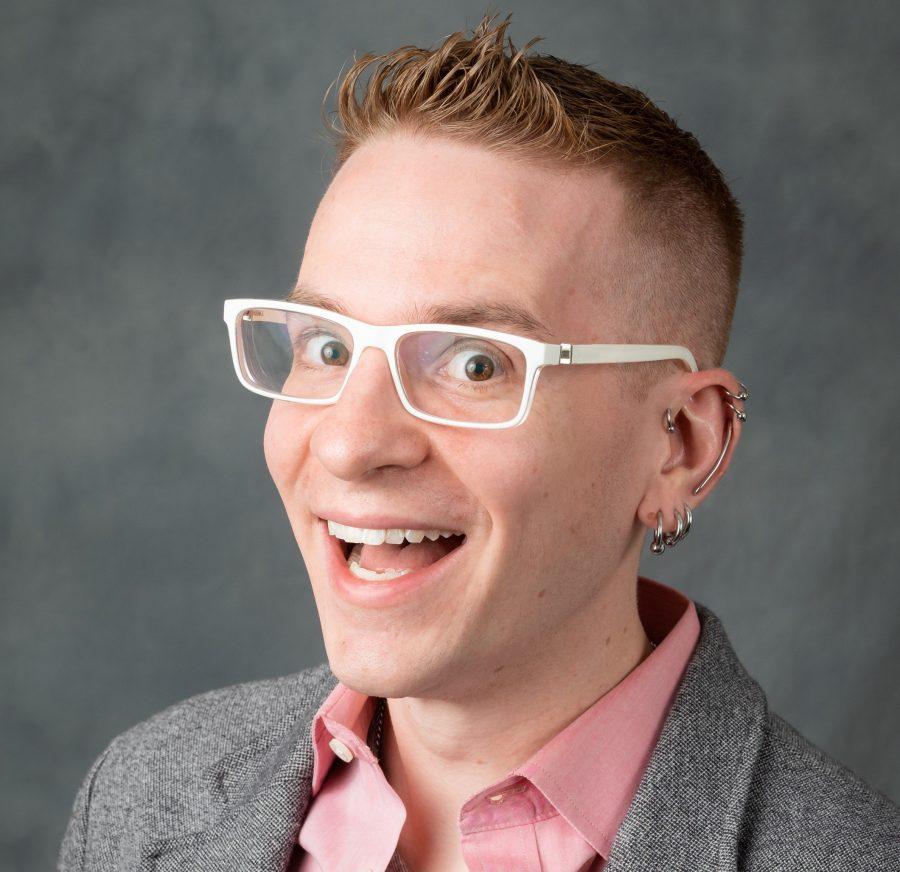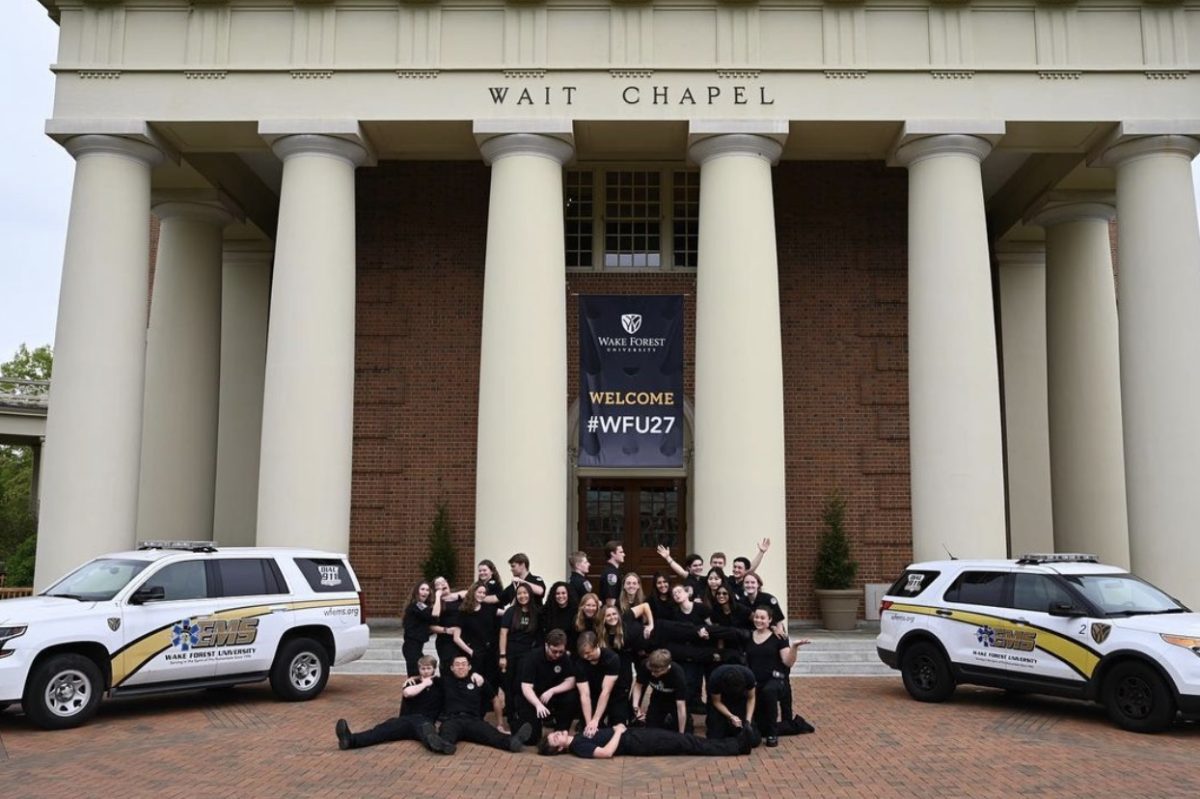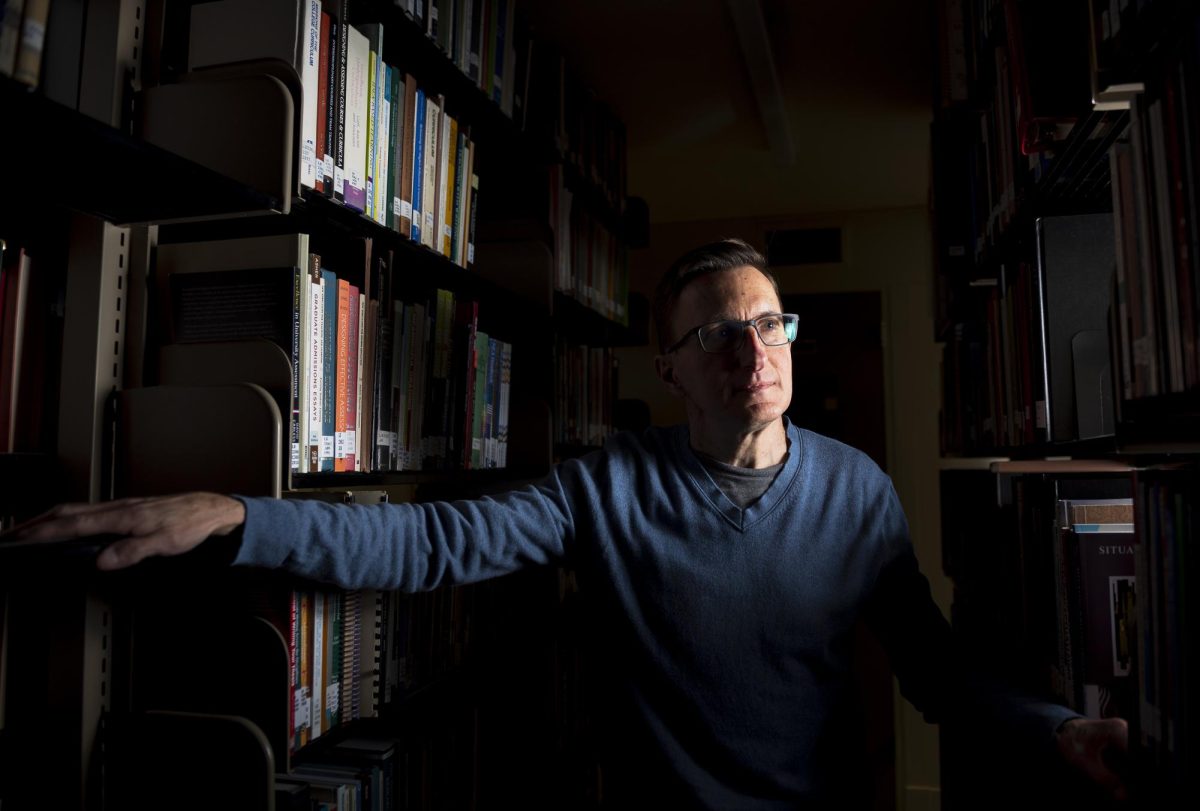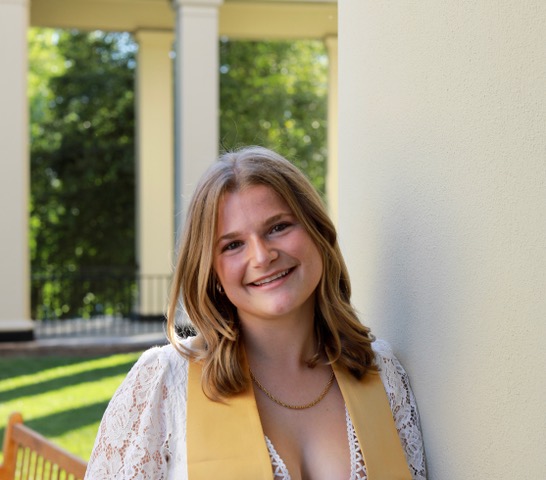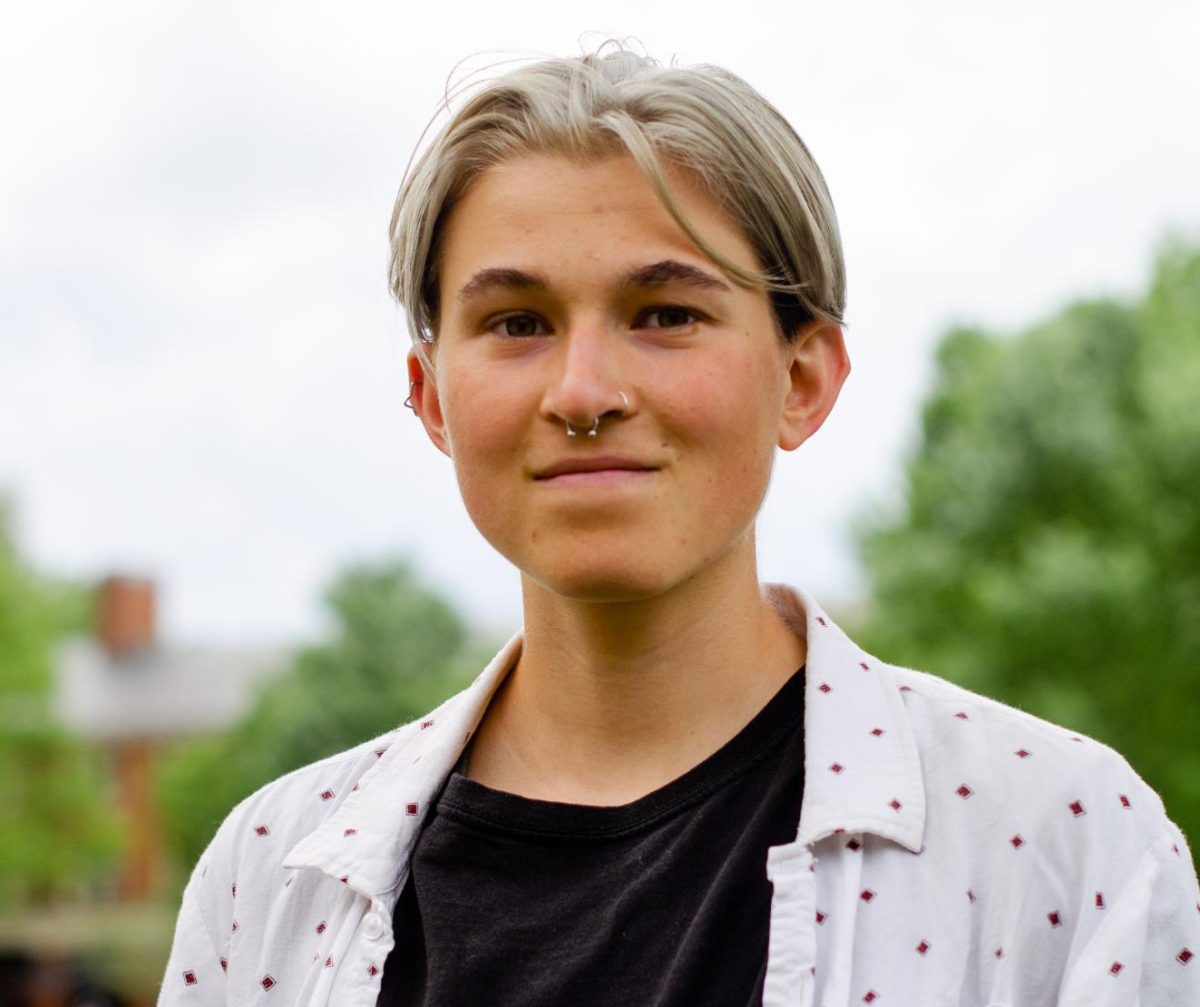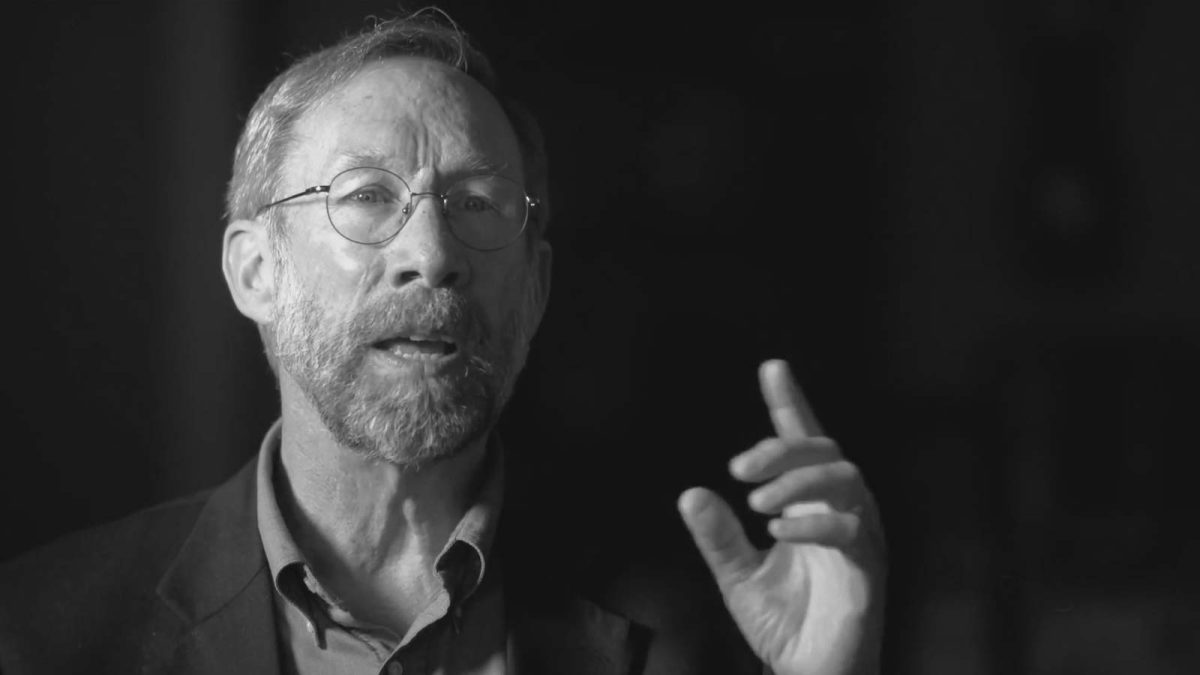Earlier this month, T.H.M. Gellar-Goad, a professor in the classics department, was awarded the Activism Award from the Lambda Classical Caucus for his work on protecting LGBTQI+ members of the Classical Association of the Middle West and South. Within the university, Gellar-Goad advocates for the LGBTQI+ community and promotes meaningful change as a member of the Wake Forward faculty group. He has taught at Wake Forest since 2012 and earned his Ph.D. in classics from UNC-Chapel Hill.
Why do you think classics is important to examine today?
One of the most pertinent reasons is that ancient Greece and Rome are very, very unlike the modern United States in many ways, including in how sexuality is constructed. “Straight” and “gay” are modern social constructs, and to figure that out, we need look no further than the texts and artifacts of the Graeco-Roman world, where we see modes of sexuality that do not always or automatically stigmatize erotic attraction between people of the same gender. And lots more, too, to challenge our sensibilities — and for us to challenge and reject in ancient societies.
How would you describe your approach to teaching?
The two core components of my teaching are equity and the scholarship of teaching and learning. By equity, I mean that my foremost goal as an educator is to create an inclusive, welcoming learning environment and to model equity and inclusion in my own behavior and language. By scholarship of teaching and learning, I mean that I base my teaching methods on how learning actually works, as demonstrated in psychological and neuroscientific research.
My students might describe my teaching rather differently, though. I’d imagine they’d say things like “he thinks grades are a tool of oppression!” (I do) or “there’s always some sort of game or gimmick in his courses” (there is) or “he’s really bad at email” (I am).
What exactly is the Lambda Classical Caucus? How did you become involved?
The Lambda Classical Caucus (LCC) is the main LGBTQI+ advocacy group in my discipline. It has two primary objectives: to advance equity for LGBTQI+ classicists and to advance the study of genders and sexualities in the field. I’ve been a member of the LCC since early in grad school.
What work of yours received recognition with the Activism Award?
In collaboration with Professor Christopher B. Polt of Boston College, I spearheaded an effort to lobby a national classics organization to better support its LGBTQI+ members. The organization, the Classical Association of the Middle West and South (CAMWS), decided to have its 2023 conference at Brigham Young University (BYU). BYU is, unfortunately, one of the most hostile campuses in the nation for LGBTQI+ people because its policies are tightly controlled by the elders of the Church of Jesus Christ of Latter-Day Saints. These policies include a ban on so-called homosexual behavior, strict monitoring of students’ gender expression and policies suggesting that visitors may not be permitted to speak on campus if their work or lives are inconsistent with church ideology.
All in all, this makes BYU an unwelcoming and unsafe site for LGBTQI+ students and scholars of classics. So Chris and I did everything we could to get the leadership of CAMWS to change course. We started with personal, backchannel contact with the CAMWS Executive Committee. When that got us nowhere, we coordinated a coalition of organizations — the LCC, the Women’s Classical Caucus (for which I sit on the steering committee), the Classics and Social Justice group (I’m also on their steering committee) and the Society for Classical Studies’ Committee on Gender and Sexuality in the Profession — to formally request CAMWS to move its conference off the BYU campus. When that, too, failed, Chris and I resigned from our leadership positions in CAMWS and published an open letter explaining why. That did the trick: it generated a social-media firestorm that caused CAMWS within days to agree to hold the entire conference in the hotel (with its corporation-wide, LGBTQI+-inclusive nondiscrimination policy) and nothing on BYU’s campus.
Why are you so passionate about protecting and advocating for the rights and inclusion of LGBTQI+ individuals?
I’m an intersectional feminist, and so my beliefs (and my intellectual fundamentals) push me to value equity for all and to oppose inequity and discrimination where and as I can. As a gay man who grew up in North Carolina, I’ve experienced my fair share of homophobia and discrimination, and I’ve decided to use my position and what power comes with it to work against injustice.
How do you feel about the representation and resources available for the LGBTQI+ community at Wake Forest?
The staff of the LGBTQ Center here do amazing work and are an invaluable resource for our student body. But we — not just they — have a lot still to do, because many students still cannot be who they are on this campus. It’s incumbent upon all of us, but especially upon the students who dominate the social life of this campus, to reshape it to be one that explicitly includes, rather than implicitly and explicitly marginalizes, LGBTQI+ students as full-fledged members of the community.
What do you think the future of the LGBTQI+ community looks like?
LGBTQI+ people can still be fired for not being straight or cisgender and can still be denied housing for the same reason. LGBTQI+ youth experience disproportionately high levels of homelessness and suicide. Two states still ban government-funded travel to North Carolina because of the anti-LGBTQI+ ideologies espoused by the majority party of our state legislature.
There’s a long way to go, and it ain’t gonna be easy, especially not with the culturally conservative, white nationalist backlash that’s gained power at the federal level on down.



